Families back balloon's organ donation mission
- Published
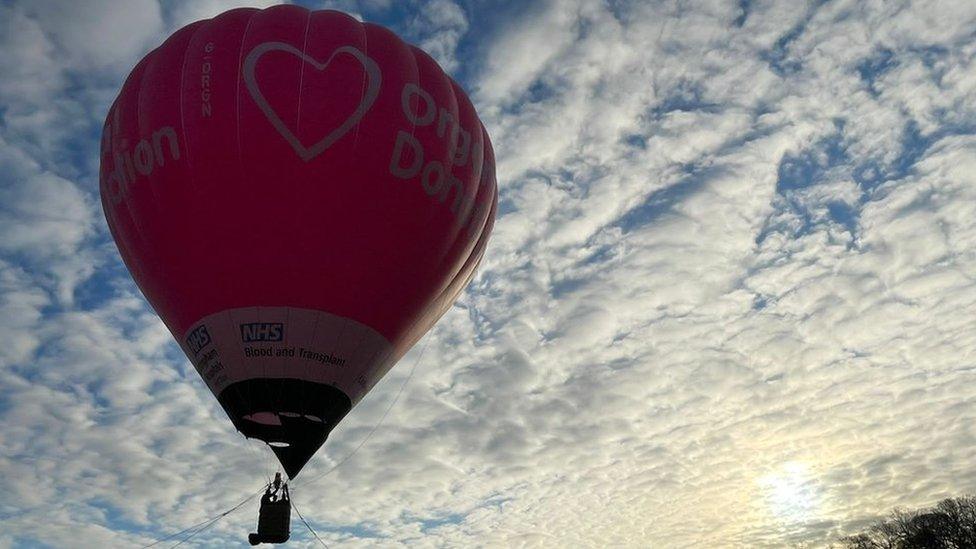
The balloon has flown nine times since its inaugural launch in March
A bright-pink hot air balloon has been flying across the UK as part of a national campaign to raise awareness for organ donation.
"Betty" the balloon made its inaugural flight on 27 March in Nottingham.
Skye Irvine-Berry, of Nottingham University Hospitals (NUH) NHS Trust's organ donation team, said "Betty" had a "simple message" - to encourage people to chat about organ donation.
She added: "I want people to look up and have that conversation."
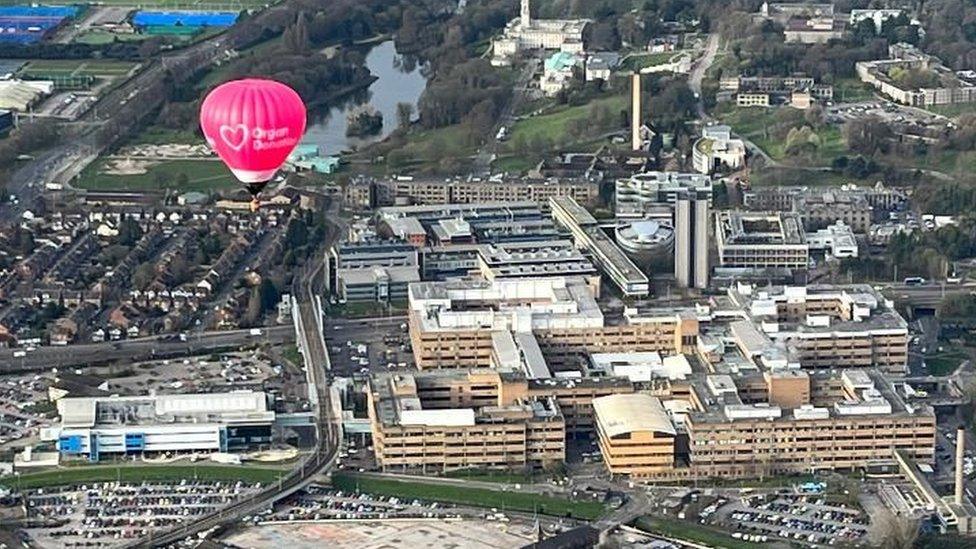
"Betty" flying over the Queen's Medical Centre
About 500,000 people die every year in the UK, but only about one per cent die in circumstances where they can donate their organs, the trust says.
There are currently 7,000 people - including 200 children - who are waiting for a life-saving transplant in the UK.
The law surrounding organ donation in England was changed in May 2020 to allow more people to save more lives, which changed the system so people had to opt out rather than opt in to become donors.
All adults in England are now considered to have agreed to be an organ donor when they die unless they have recorded a decision not to donate or are in one of the excluded groups.
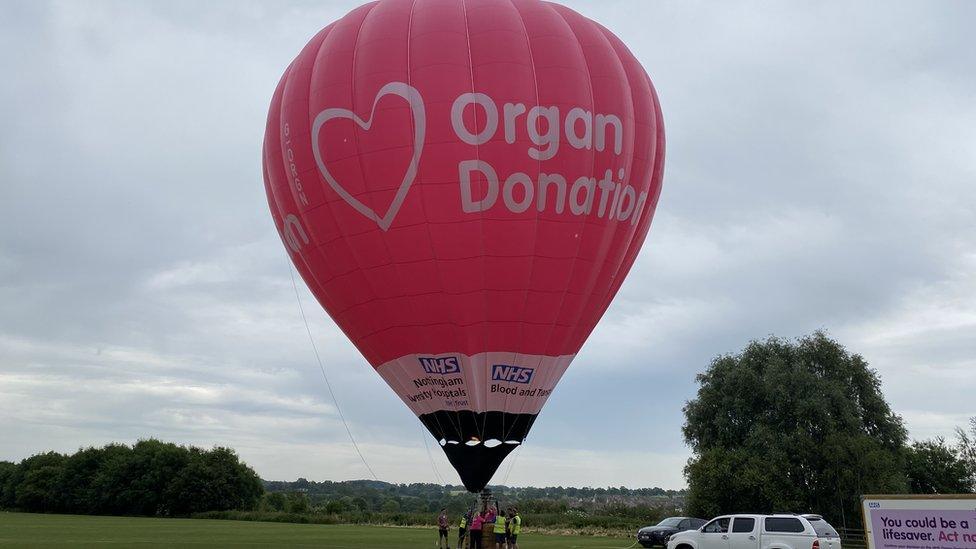
"Betty" the balloon at Leicester Grammar School
Ms Irvine-Berry said the idea for the balloon popped into her head at a meeting discussing ways to promote organ donation and thought it was "a little bit different".
She added: "Everyone notices a hot air balloon, and people release balloons when their loved ones die so it symbolises that aspect of donations.
"Betty mainly symbolises two things mainly, we want to promote donation to help our recipients but we also want to show our love and our respect to our donor families."
Families who have experienced organ donation first-hand have now added their voices of support to Betty's mission.
'It felt perfect to be able to help'
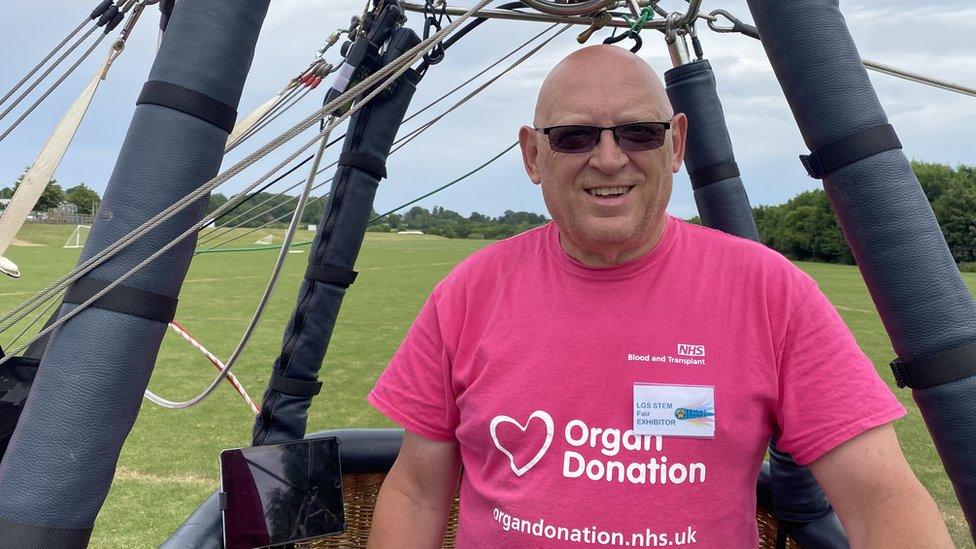
Mr Humphries has been flying "Betty" since the start of the awareness campaign
Pilot of the balloon, Neil Humphries has a history with organ donation himself. His second child was born with chronic renal failure and received a kidney transplant in late 1996.
He has been flying hot air balloons since 2012 and was approached by the balloon company that was involved with building "Betty".
"It was only months later that I found out what it was for and it felt perfect for myself to be able to help," Mr Humphries said.
He added: "There are always people out there who really need an organ transplant. When we pass away our organs are no longer any use to us but they can make someone else's life so much better.
"I love flying balloons and particularly Betty as it helps to spread the word. We get a lot of attention whenever we are out flying."
'The most extraordinary gift anybody can give'
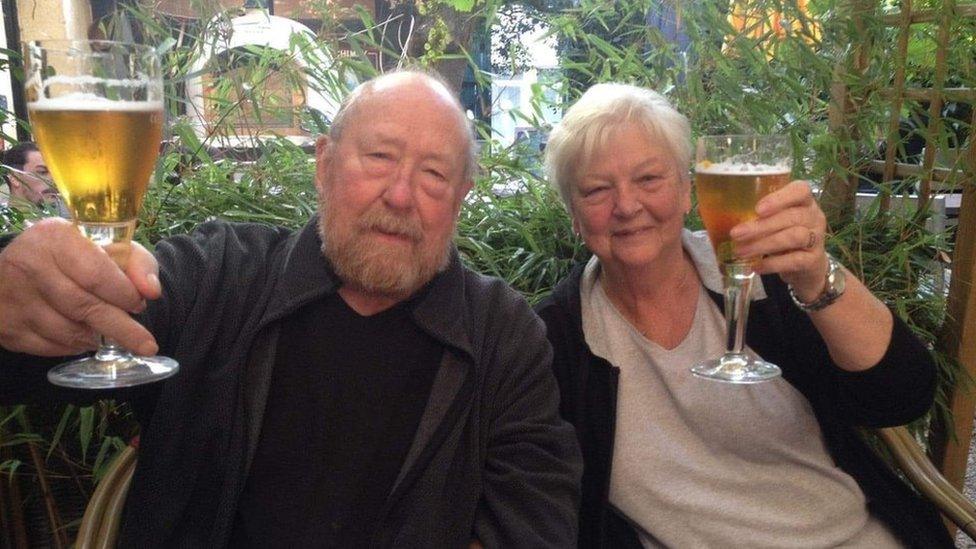
Ben Roberts was in The Bill between 1987 and 2002
Helen Roberts is also a supporter of the scheme. Her husband, Ben Roberts, best known for playing Chief Inspector Derek Conway in The Bill, had a kidney transplant in 2013. She said the transplant prolonged his life for nine years before he passed away in 2021.
Money donated in Ben's memory at Nottingham City Hospital led to the creation of a memorial garden and a bench in his name in the organ donation area of the hospital.
Helen said the transplant kept him "very much alive" and gave them several more years together.
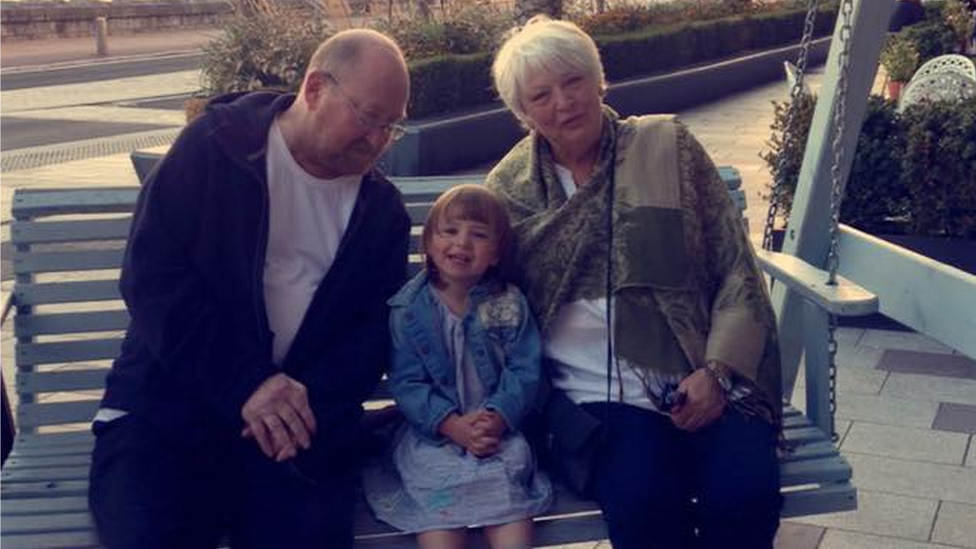
Helen and Ben with their granddaughter
She said: "It turned my husband into somebody who was the person that I had known years before. He went from being a sick old man, to being the grandfather that could roll around the floor and paint our granddaughter's face with green felt tips, sadly permanent!
"He and I were immensely grateful for not only the care he received, but also to the family of the donor who agreed to put that kidney into the system to save somebody like Ben.
"It's the most extraordinary gift that anybody can give another person."
Helen said it was important people talked about what they wanted to happen with their own organs after death.
She added: "A balloon, whatever it takes, if it works, go for it."
'My donor saved 10 lives'
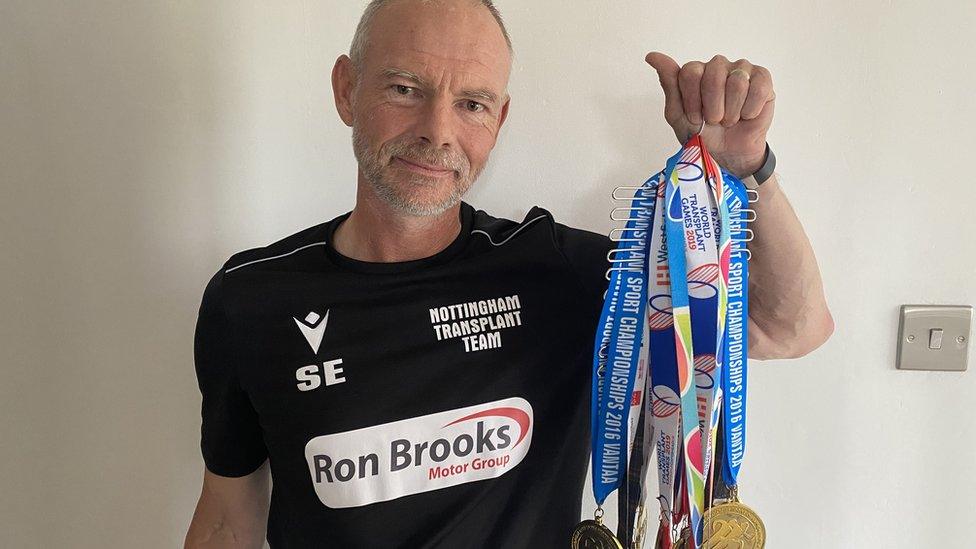
Simon had to have dialysis treatment four times a week before he received a kidney transplant
Simon Elmore, 48, from Belper, Derbyshire, received a kidney transplant in early 2015 after both his own organs failed.
Mr Elmore said: "By chance I had a headache, it felt like a migraine. I went to my parents house where paramedics took me into hospital, where I was told my kidneys have failed and that I was going on dialysis. I thought my life was over."
Simon has always been a lover of sports, his life was heavily involved with playing and coaching football throughout his life before his kidney failure changed his life.
He said: "My whole life was sport. I crashed into kidney failure with high blood pressure that wiped me out completely, I was on dialysis for seven years. During that time I've had a stroke, sepsis, I've died four times I was given half an hour to live."
Simon was given a lifeline when he came across transplant sport at a National Kidney Federation Conference. He was told he had a way back into sport if he received an organ donation. However, he could only compete with the team if he had had a transplant more than six months earlier.
He said: "I had two call-ins that didn't happen. Organs will become available but its all about which organ is a closer match to your body and can be a bit of a lottery.
"My third calling was the one where a kidney became available. After I had the transplant, my whole mindset changed. I could finally do sport again now. Everything felt like a new world to me, and every day I wake up is like Christmas Day."
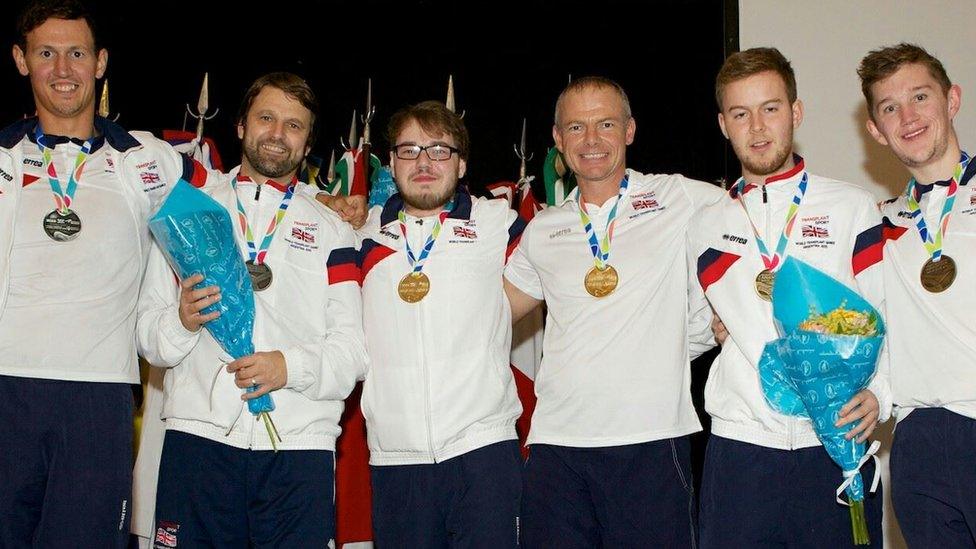
Simon winning gold
After his transplant, Simon was eligible to play in the transplant games for Team GB, exactly six months and six days after his operation.
Mr Elmore vowed that if he won a medal, he would give to his donor family as a thank you for saving his life.
He said: "I went to Argentina and won two gold medals. The following year I did a 100-mile walk around Derbyshire and I met my donor family, and I was able to give them my medal.
"Having the transplant was a godsend.
"I met Carol, my donor's wife, and thanked her and I'm here today because of their decision to say yes to organ donation."
Mr Elmore said that his donor had saved 10 lives.
"John who passed away, he saved 10 people with his donations," he said. "Four children under the age of four were saved, just from his heart valve."
Simon went on to win six gold medals in his first competitive year with the transplant team in 2015-16. Overall, he has won seven world golds, four European golds and 16 golds from the British games.
"This was all thanks to my donor family having a conversation many years ago that let them know he wanted to give his organs away, and that's all it takes," he added.
Simon hopes he can go up into the skies inside "Betty" one day.
He said: "I would love to go up the balloon, and I hope it brings awareness as the organ donation team are incredible and are so passionate with what they want to achieve."

Follow BBC East Midlands on Facebook, external, on Twitter, external, or on Instagram, external. Send your story ideas to eastmidsnews@bbc.co.uk, external.